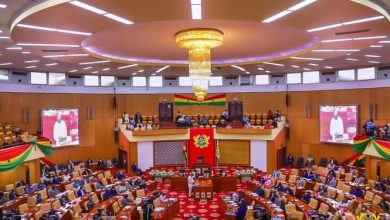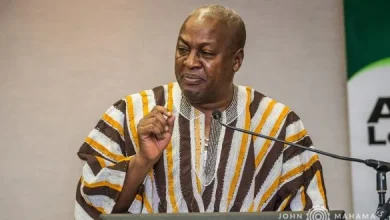Democracy Hub sues government over ‘unconstitutional’ deportation deal with U.S.

Civil society group Democracy Hub has filed a writ at the Supreme Court challenging what it describes as an “unconstitutional and illegal” Memorandum of Understanding (MoU) between the Government of Ghana and the United States of America for the reception and detention of deported West African nationals.
The group contends that the MoU — which allegedly allows the U.S. to transfer third-country nationals into Ghana for temporary detention and onward rendition — violates both Ghana’s Constitution and international human rights obligations.
The Supreme Court has fixed Wednesday, October 22, 2025, to hear an application for an interlocutory injunction seeking to halt the implementation of the agreement pending the final determination of the case.
Secret Deal and Detentions
According to Democracy Hub, the Foreign Affairs Minister Samuel Okudzeto Ablakwa disclosed in September that Ghana had reached an understanding with the United States to receive and temporarily detain deported West African nationals from U.S. Immigration and Customs Enforcement (ICE) facilities.
The arrangement was said to form part of broader negotiations to lift visa sanctions imposed by Washington on Ghana.
Since then, the group says 42 individuals have been repatriated in three separate batches — on September 6, September 19, and October 13, 2025 — and detained under armed military custody at the Bundase Military Training Camp.
Democracy Hub alleges that the deportees were held in “deplorable conditions for weeks without charge, without access to lawyers, and under inhumane conditions.”
Constitutional and Legal Grounds
The writ, filed under Articles 2(1)(b) and 130(1) of the 1992 Constitution, seeks 28 reliefs from the apex court.
The group’s legal challenge rests on four key arguments:
Lack of Parliamentary Approval: The MoU was never laid before Parliament for ratification as required under Article 75(2) of the Constitution.
Violation of International Law: The agreement breaches Ghana’s commitments under the 1951 Refugee Convention, the Convention Against Torture, and the OAU Refugee Convention, which prohibit returning individuals to countries where they may face persecution or torture — a principle known as non-refoulement.
Abuse of Human Rights: Detaining civilians and asylum-seekers under military authority, the group says, contravenes Articles 14, 15, and 19 of the Constitution, which safeguard personal liberty, human dignity, and the right to a fair trial.
Complicity in Chain Refoulement: By participating in the transfer of individuals who may face persecution elsewhere, Ghana is allegedly facilitating “chain refoulement,” a grave breach of jus cogens norms — binding principles of international law from which no state may derogate.
In a statement accompanying the suit, Democracy Hub asserted that no administration has the right to “secretly contract Ghana out of its constitutional and human rights obligations.”
“The Constitution demands transparency, parliamentary oversight, and respect for human dignity in all matters of international cooperation,” the group said. “This case is not only about the individuals affected but also about safeguarding Ghana’s democratic integrity and its standing as a rule-of-law state that upholds international human rights.”
If upheld, the case could set a precedent for how Ghana negotiates and ratifies international agreements involving foreign security and immigration arrangements.










